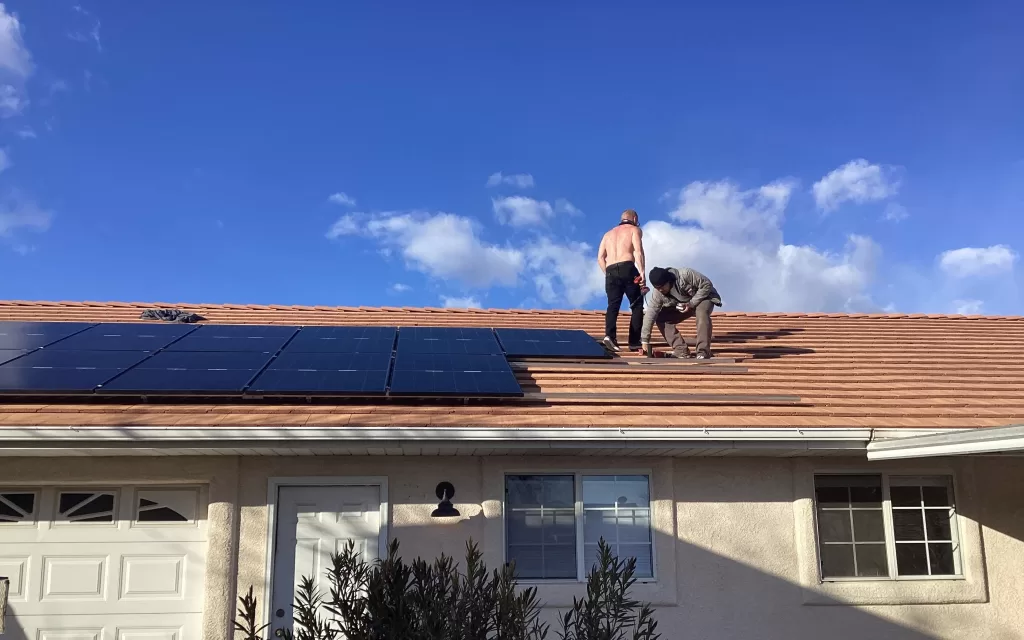How do solar panels work?
Solar panels work by converting sunlight into electricity through a process called the photovoltaic effect. Here’s how it works:
Sunlight hits the solar panel: The solar panel is made up of a collection of photovoltaic (PV) cells, which are made from silicon or other materials. When sunlight hits the PV cells, it excites the electrons in the material, causing them to become free.

Electrons flow: The free electrons flow through the material and create a flow of electricity. This flow of electricity is called a direct current (DC).
Inverter: The DC electricity generated by the solar panel is sent to an inverter, which converts the DC electricity into alternating current (AC) electricity that can be used to power homes and businesses.
Power distribution: The AC electricity is sent to the electrical panel in your home or business, where it is distributed to power your lights, appliances, and other electrical devices.
Solar panels can generate electricity as long as they are exposed to sunlight. The amount of electricity a solar panel can generate depends on several factors, including the size of the panel, the efficiency of the PV cells, and the amount of sunlight the panel receives.

How much electricity can solar panels create in St. George, UT?
The amount of electricity that solar panels can create in St. George, UT depends on a number of factors, including the size and efficiency of the solar panels, the amount of sunlight the panels receive, and the local weather conditions. However, St. George, UT is known for its abundant sunshine, which makes it a great location for solar energy production.
On average, a typical 1-kilowatt (kW) solar panel system in St. George, UT can generate around 1,600 kilowatt-hours (kWh) of electricity per year. This means that a larger 5-kW solar panel system could generate around 8,000 kWh of electricity per year, while a 10-kW system could generate around 16,000 kWh of electricity per year.
It’s worth noting that the amount of electricity generated by a solar panel system can vary depending on a number of factors, including the orientation and tilt of the panels, shading, and the efficiency of the system. Additionally, the amount of electricity used by a home or business will also impact the overall energy savings from a solar panel system.